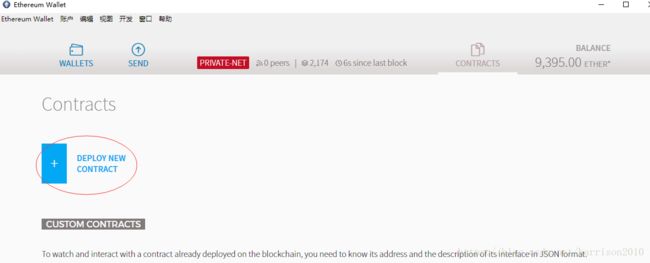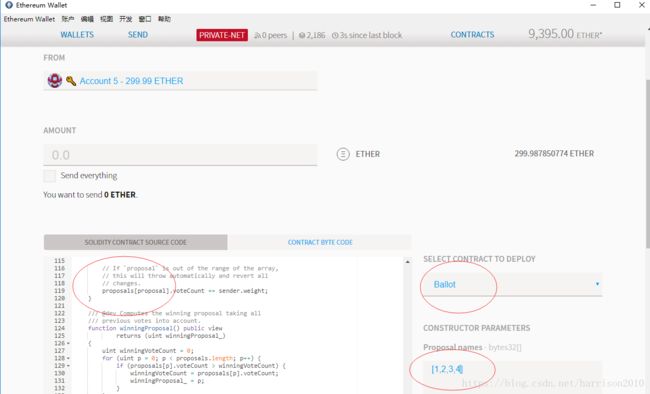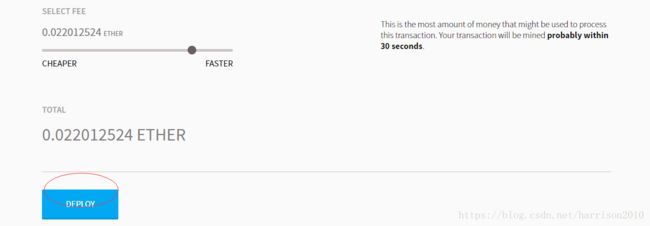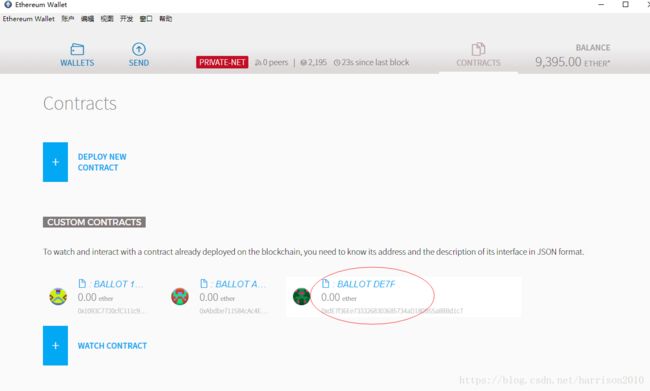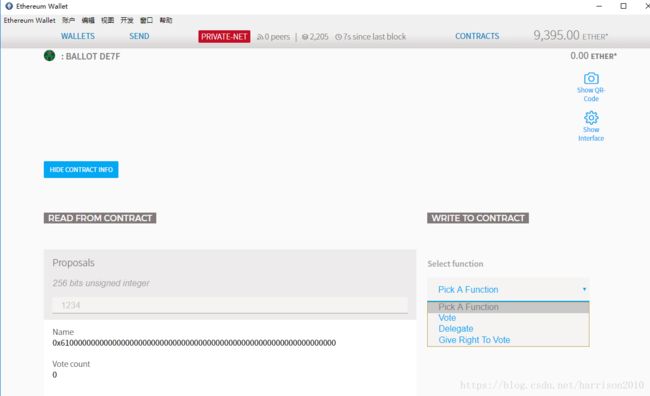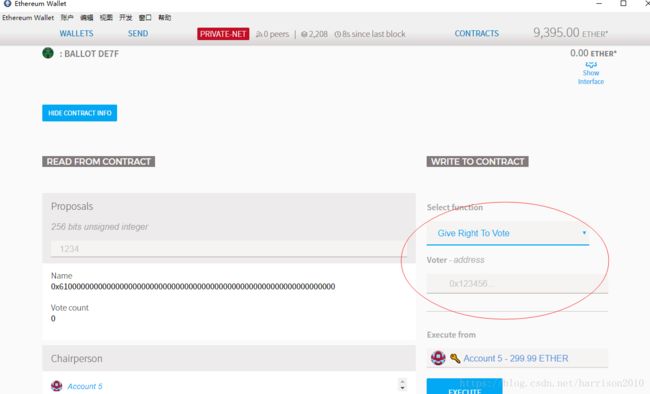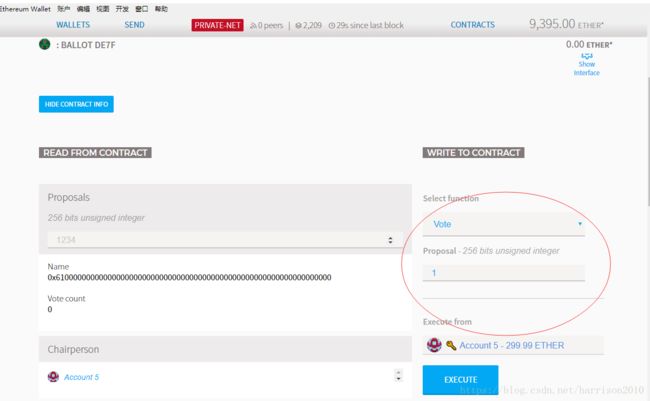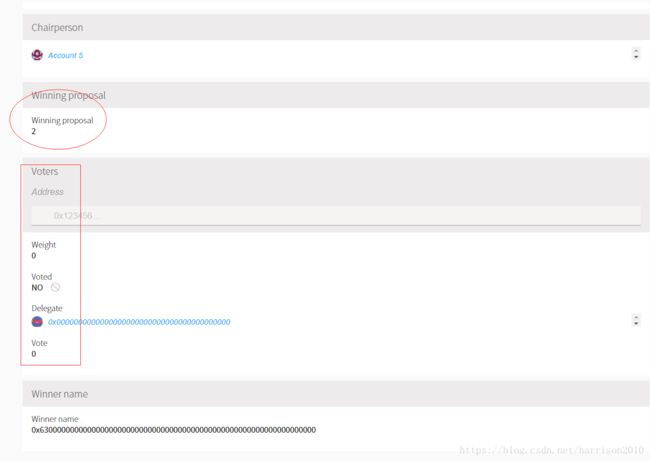- 从零开始:使用ArcBlock构建你自己的DID
YekForth
区块链
随着区块链技术的发展,去中心化身份(DecentralizedIdentifiers,DID)成为了数字身份管理的重要组成部分。DID提供了一种去中心化的方式来验证和管理数字身份,使得用户可以更好地掌握自己的身份信息。在本文中,我们将介绍如何使用ArcBlock构建和管理自己的DID,并提供相关的源代码示例。DID是一个唯一标识符,它与特定的实体(如个人、组织或物品)相关联。ArcBlock是一个
- 聊聊当今IT行业的乱象
it程序员程序员发展技术
当今IT行业的“乱象”确实是一个值得探讨的复杂话题。当下互联网,大的背景是行业寒冬,工作岗位的数量和质量都远远不如之前,造成了打工人卷的飞起的现象,但是从企业端去看,却是面临高端人才不足,低端人才过剩以及招的人数很多但是却满足不了业务需求的问题。一、资本驱动下的“技术表演”PPT造神运动元宇宙、区块链、Web3.0等概念被过度包装,企业用“未来叙事”圈钱,实际落地场景寥寥。案例:某公司宣称开发“元
- 小程序租赁系统智能风控与区块链整合
红点聊租赁
其他
内容概要想在小程序里搞租赁生意?光有个扫码入口可不够,得先给系统装上"风险雷达"。这套智能风控闭环就像给平台雇了个24小时不眨眼的AI保安——芝麻信用分刚过及格线?先别急着免押,让央行征信数据再给它做套CT扫描。区块链存证可不是单纯把合同扔进链上就完事,得像给重要文件套上十层防弹玻璃,每次租赁行为都被刻成带时间戳的"数字琥珀",就算遇到老赖扯皮,直接调取司法链上的证据包,分分钟能当庭播放交易全息录
- 如今传统企业如何做数字化转型?
年少有为2025
saas小程序开发bigdata人工智能大数据产品运营架构
什么是数字化转型?“数字化转型”实际上就是对业务过程进行的重塑,通过重塑使其默认就更加适应更全面的在线环境,从最终用户的接触到后端的办公室工作,全面实现无需人工接入的过程自动化。广义上的数字化,强调的是数字技术对商业网的重塑,信息技术能力。不只是单纯的解决企业的降本增效的问题,而是成为赋能企业商业模式创新和突破的核心力量。“数字化转型就是利用数字化技术,如云计算、大数据、人工智能、物联网、区块链等
- 走进 DeFi 的世界
走进DeFi的世界在当今的金融科技领域,去中心化金融(DeFi)正掀起一场前所未有的革命,它宛如一颗璀璨的新星,重塑着传统金融的格局。DeFi,从本质上来说,是建立在区块链技术之上的金融体系,旨在打破传统金融中介机构的垄断局面。与传统金融依赖银行、券商等中心化机构不同,DeFi利用智能合约来实现金融交易的自动化执行。这些智能合约如同一个个忠诚且精准的卫士,严格按照预设的代码规则运行,无需人为干预,
- 去中心化应用 DApp:开启数字经济新时代
在当今数字化飞速发展的时代,去中心化应用(DApp)作为区块链技术的重要创新成果,正逐渐崭露头角,引领着数字经济的新变革。DApp的定义与特性去中心化:DApp运行在区块链网络上,不依赖单一的中心化机构或服务器,其数据、逻辑和状态都存储在区块链的分布式账本中,由众多节点共同维护和验证,避免了单点故障和数据篡改的风险,极大地提升了系统的安全性和稳定性。透明性与可追溯性:所有在DApp上发生的交易和数
- 【区块链技术开发】 关于Windows10平台Solidity语言开发环境配置
源代码杀手
区块链技术开发区块链
目录1、安装Node.js2、安装Solidity编译器3、安装RemixIDE4、安装MetaMask浏览器插件5、环境配置与问题解决6、安装Ganache:以太坊区块链开发测试工具7、安装Web3.js库8、VsCode配置Solidity语言环境并运行示例代码编译方法1:运行上述示例只需在终端输入编译命令Solcjs编译方法2:安装Solidity插件9、在VSCode运行合约参考文献在Wi
- 什么是DApp?从智能合约到完整DApp系统开发
电报号dapp119
区块链开发智能合约区块链去中心化
随着区块链技术的蓬勃发展,去中心化应用(DApp)逐渐成为数字经济的重要组成部分。DApp不仅具有去中心化的特性,还能提供更高的安全性和透明度。在这篇文章中,我们将深入探讨DApp的概念、智能合约的作用,以及完整DApp系统的开发过程。一、DApp的基本概念1.1什么是DApp?去中心化应用(DApp)是一种运行在区块链网络上的应用程序,具有以下几个显著特征:去中心化:DApp的数据存储和处理不依
- 区块链开发:DAPP、NFT、DAO、公链与钱包软件
电报号dapp119
区块链开发区块链智能合约人工智能
在当今数字化时代,区块链技术以其去中心化、透明性、不可篡改等特性,正逐渐重塑各个行业的发展模式。其中,DAPP(去中心化应用)、NFT(非同质化代币)、DAO(去中心化自治组织)、公链以及钱包软件的开发成为了区块链领域的核心焦点,为未来的数字经济带来了前所未有的机遇与挑战。一、DAPP:去中心化应用的崛起DAPP是基于区块链技术开发的去中心化应用程序,与传统的中心化应用相比,具有显著的优势。首先,
- 区块链软件系统开发:从设计到实现的全面指南
电报号dapp119
区块链开发区块链去中心化智能合约
区块链技术自从比特币诞生以来,迅速成为了改变金融、供应链、医疗、政府等多个领域的核心技术。作为去中心化、不可篡改、透明可信的分布式账本技术,区块链不仅为加密货币提供了基础,还推动了许多创新应用的发展。然而,开发一个区块链软件系统并非易事。它涉及的技术难题、架构设计、以及安全和性能优化等方面的挑战都需要开发者深入理解和实践。本文将详细阐述区块链软件系统开发的过程,包括从需求分析到系统设计,再到开发与
- 【Python爬虫(79)】解锁区块链+爬虫:数据采集的未来新范式
奔跑吧邓邓子
Python爬虫python爬虫区块链开发语言
【Python爬虫】专栏简介:本专栏是Python爬虫领域的集大成之作,共100章节。从Python基础语法、爬虫入门知识讲起,深入探讨反爬虫、多线程、分布式等进阶技术。以大量实例为支撑,覆盖网页、图片、音频等各类数据爬取,还涉及数据处理与分析。无论是新手小白还是进阶开发者,都能从中汲取知识,助力掌握爬虫核心技能,开拓技术视野。目录一、引言二、区块链原理与分布式账本技术2.1区块链核心概念2.2分
- 【限时免费】20天拿下华为OD笔试之【不定滑窗】2023Q1A-区块链文件转储系统-200分【闭着眼睛学数理化】全网注释最详细分类最全的华为OD真题题解
闭着眼睛学算法
最新华为OD真题#滑动窗口华为odpython算法面试华为
【不定滑窗】2023Q1A-区块链文件转储系统题目描述与示例题目描述区块链底层存储是一个链式文件系统,由顺序的N个文件组成,每个文件的大小不一,依次为F1,F2,…,Fn。随着时间的推移,所占存储会越来越大。云平台考虑将区块链按文件转储到廉价的SATA盘,只有连续的区块链文件才能转储到SATA盘上,且转储的文件之和不能超过SATA盘的容量。假设每块SATA盘容量为M,求能转储的最大连续文件大小之和
- 以太坊DPOS私链搭建--使用gttc,搭建一个可用于性能测试的区块链框架(1)
过河卒啦啦啦
区块链研究区块链以太坊
遇到的一些坑bootnode一直不起作用,所以决定不用它,改用static-nodes.json在阿里云机器上编译gttc系统Ubuntu16.04想把eth服务部署到docker中方便移植,但是gttc没有官方docker,所以先把环境搭起来,然后自己创建一个docker镜像安装go语言环境,版本go1.14.10注意需要先在电脑上下载好,再传到服务器,不然没法解压。tar-Cusr/local
- 华为OD机试 C++ - 区块链文件转储系统
steven_moda
华为OD机试C++华为odc++javajavascriptpython华为OD机试算法
区块链文件转储系统前言:本专栏将持续更新华为OD机试题目,并进行详细的分析与解答,包含完整的代码实现,希望可以帮助到正在努力的你。关于OD机试流程、面经、面试指导等,如有任何疑问,欢迎联系我,wechat:steven_moda;email:
[email protected];备注:CSDN。题目描述区块链底层存储是一个链式文件系统,由顺序的N个文件组成,每个文件的大小不一,依次为F1,F2…F
- 区块链与量子计算的交汇:浅谈区块链系统与量子攻击
莫潇羽
区块链量子计算
当今社会,信息技术正在以惊人的速度发展,给社会带来了一系列深刻的变革。区块链这一极具创新性与颠覆性的技术,正逐步在众多领域释放出巨大的潜能。但伴随着量子计算技术的持续向前迈进,其对传统的加密体系形成了严峻的威胁,致使区块链系统的安全性遭遇了前所未有的巨大挑战。区块链技术依靠其去中心化、不可篡改以及安全可靠等显著特性,在金融、供应链、医疗等诸多领域实现了广泛的运用。例如,在金融领域,它为交易数据的存
- 密码学系列(三):区块链+密码学基础知识
Juno07
密码学区块链
密码学系列(三):区块链+密码学基础知识一、区块链的概念区块链概述区块链的特点区块链变化市场现状二、区块链政策与标准区块链的特点与发展三、区块链的定义区块链的价值四、区块链开发语言五、区块链应用领域补充:一、区块链的概念区块链概述区块链是一个不断增长的记录列表,每一个记录被称为区块,使用密码学技术连接在一起。每个块包含前一个块的密码散链的时间戳和交易数据((通常表示为默克尔树)。因为每个区块都包含
- 以太坊介绍
倒霉男孩
区块链区块链
文章目录以太坊以太坊和比特币的区别以太网货币单位以太坊以太坊是“世界的计算机”。以太坊是一种确定性但实际上无界的状态机,它有两个基本功能,第一个是全局可访问的单例状态,第二个是对状态进行更改的虚拟机。从更实际的角度来说,以太坊是一个开源的,全球的去中心化计算架构,执行成为智能合约的程序。它使用区块链来从同步和存储系统状态,以及称为ether的加密货币来计量和约束执行资源成本。智能合约相当于可以在以
- 精选区块链技术API,助力创新应用
程序员后端
从最初作为数字货币交易的基础技术,到如今涵盖金融、供应链管理、医疗保健、物联网等多个行业,区块链技术正逐渐成为改变世界的重要力量。在金融领域,区块链技术可以实现更安全、透明、高效的资产交易和结算,提高交易的可信度和效率。在供应链管理中,区块链可以追溯产品的来源和流向,防止商品伪造和交易欺诈。在医疗保健领域,区块链技术可以保护患者隐私,确保医疗数据的安全性和可信度。在物联网领域,区块链可以实现设备之
- 网关类设备技术演进思路
看兵马俑的程序员
网闸安全
1.新技术采纳5G和物联网技术:支持更快的数据传输和更多连接。人工智能(AI)和机器学习:用于数据分析、用户行为预测和自动化决策。边缘计算:在设备端进行数据处理,减少对云服务的依赖,提高响应速度。区块链技术:用于确保数据安全和网络安全。2.安全性和隐私数据加密和隐私保护:采用最新的加密技术保护数据传输和存储。身份验证和访问控制:强化用户身份验证,确保只有授权用户可以访问网关。固件和软件安全更新:支
- Web3与区块链:未来互联网的去中心化之路
威哥说编程
web3
在过去的几十年里,互联网经历了显著的变化,从最初的静态网页到动态应用,再到如今的社交平台、电子商务和云计算。然而,互联网的中心化模式始终存在着权力过度集中、隐私泄露、平台控制等问题。Web3和区块链作为未来互联网的两个关键概念,正通过去中心化的方式,重新塑造数字世界的架构,推动着互联网的下一次革新。Web3与区块链不仅仅是技术上的突破,它们也代表了对当前互联网的哲学挑战。它们的目标是通过去中心化的
- 2025保险与金融领域实战全解析:DeepSeek赋能细分领域深度指南(附全流程案例)
emmm形成中
deepseek细分领域应用人工智能金融人工智能python数据挖掘数据分析
2025保险与金融领域实战全解析:DeepSeek赋能细分领域深度指南(附全流程案例)目录DeepSeek在保险与金融中的核心价值保险领域:从风险建模到产品创新金融领域:从投资分析到财富管理区块链与联邦学习的应用探索客户关系与私域运营:全球化体验升级工具与资源推荐:从入门到精通未来趋势与挑战一、DeepSeek在保险与金融中的核心价值1.1DeepSeek的核心功能智能风险建模:通过大数据分析,精
- 问:区块链开发和智能合约开发这两个职位有什么区别,都是干什么的?
zqx_7
区块链智能合约
一、工作内容1.区块链后端开发网络层开发:负责构建和维护区块链节点之间的网络通信。确保节点能够高效、稳定地进行数据传输和同步。这涉及到选择合适的网络协议(如P2P协议),并实现节点的连接、断开和消息传递机制。优化网络性能,降低延迟和提高吞吐量,以满足大规模区块链应用的需求。例如,通过调整网络参数、使用缓存技术和优化数据传输算法等方式,提高网络的响应速度和数据处理能力。数据存储层开发:设计和实现区块
- **zkEVM Node:为未来区块链搭建的高性能节点**
黎杉娜Torrent
zkEVMNode:为未来区块链搭建的高性能节点去发现同类优质开源项目:https://gitcode.com/在不断演进的区块链世界中,zkEVMNode作为一款由Go语言构建的核心组件,正引领着零知识证明技术与以太坊虚拟机(EVM)的融合革命,旨在优化PolygonzkEVM网络的运行效率和安全性。技术亮点:构建下一代区块链基础设施零知识证明(ZKP)与EVM的完美结合zkEVMNode的设计
- 细分数字货币钱包的不同种类
杰哥的技术杂货铺
Web3区块链
文章目录一、中心化钱包1.1中心化钱包架构1.2中心化钱包业务细节流程二、去中心化钱包(HD钱包)2.1去中心化钱包架构2.2去中心化钱包细节业务流程三、硬件钱包3.1硬件钱包架构3.2硬件钱包细节业务流程四、MPC托管钱包五、多签钱包中心化钱包:钱包私钥一般管理在中心化服务器上,代表项目为交易所钱包;例如Binance交易所钱包,okx交易所钱包和bybit交易所钱包等。去中心化钱包(确定性分层
- 区块链方向学习路线
Hock2024
区块链
学习路线图下面是登链社区给出的区块链开发者的学习路线图学习路线建议对于一个区块链方向的学习者而言,首先要了解的是区块链理论知识,当你了解了区块链的理论知识之后,下面有三个方向来学习,可以通俗的理解为区块链方向的后端,前端以及技术应用。区块链理论知识这里,我们推荐两门课程:北京大学肖臻老师的区块链公开课:北京大学肖臻老师《区块链技术与应用》公开课_哔哩哔哩_bilibili这门课程讲述了比特币,以太
- 区块链相关方法-波特五力分析模型
礼小七
区块链网络
一、定义:波特五力分析模型(Porter'sFiveForcesFramework)是迈克尔・波特(MichaelPorter)于1979年提出的一种用于分析行业竞争态势的工具。它通过考察五种力量的相互作用来评估一个行业的吸引力和竞争环境,这五种力量分别是现有竞争者的威胁、潜在进入者的威胁、替代品的威胁、供应商的议价能力和购买者的议价能力。二、各要素详细介绍现有竞争者的威胁(ThreatofExi
- 区块链中的递归长度前缀(RLP)序列化详解
Linke-
区块链区块链以太坊
文章目录1.什么是RLP序列化?2.RLP的设计目标与优势3.RLP处理的数据类型4.RLP编码规则详解字符串的编码规则列表的编码规则5.RLP解码原理6.RLP在以太坊中的应用场景7.编码示例分析8.总结1.什么是RLP序列化?递归长度前缀(RLP)是一种专为区块链设计的序列化方法,主要用于将复杂数据结构(如嵌套列表、字符串)转换为二进制格式。其核心思想是通过添加长度前缀明确数据边界,确保数据在
- FISCO BCOS 区块链浏览器 fisco-bcos-browser
阿祥~
区块链fisocbocs运维
目录环境要求PyMySQL部署CentOSUbuntu拉取安装脚本修改配置部署访问检查问题存在问题环境要求环境版本JavaJDK8或以上版本MySQLMySQL-5.6或以上版本PythonPython3.5+PyMySQL使用python3时需安装PyMySQL部署CentOSsudoyum-yinstallpython36-pipsudopip3installPyMySQLUbuntusudo
- 前沿科技:改变生活的十大趋势
火龙果wa
科技生活经验分享
区块链技术在版权中发挥着重要作用。它通过分布式账本,以透明和不可篡改的方式记录创作信息,从而创作者的权益。每次创作和修改都会被记录在链上,确保信息的真实性和完整性。区块链的去中心化特性使得创作者可以直接与消费者互动。通过智能合约,创作者可以设定版权条款,自动处理交易和支付。这降低了中介环节,确保创作者能够获得更多的收益。例如,音乐行业内,某些平台使用区块链技术进行版税分配,确保每位艺术家都能及时收
- 如何在Python中使用Etherscan API进行以太坊数据查询
scaFHIO
python开发语言
Etherscan是领先的区块链浏览器、搜索、API和分析平台,专注于以太坊——一个去中心化的智能合约平台。在本篇文章中,我们将介绍如何在Python中使用EtherscanAPI进行以太坊数据查询,并提供详细的代码示例。1.技术背景介绍Etherscan提供了丰富的API接口,允许开发者查询以太坊网络上的各种数据,包括交易、账户、合约等信息。使用这些API接口,开发者可以方便地集成以太坊数据到自
- Enum用法
不懂事的小屁孩
enum
以前的时候知道enum,但是真心不怎么用,在实际开发中,经常会用到以下代码:
protected final static String XJ = "XJ";
protected final static String YHK = "YHK";
protected final static String PQ = "PQ";
- 【Spark九十七】RDD API之aggregateByKey
bit1129
spark
1. aggregateByKey的运行机制
/**
* Aggregate the values of each key, using given combine functions and a neutral "zero value".
* This function can return a different result type
- hive创建表是报错: Specified key was too long; max key length is 767 bytes
daizj
hive
今天在hive客户端创建表时报错,具体操作如下
hive> create table test2(id string);
FAILED: Execution Error, return code 1 from org.apache.hadoop.hive.ql.exec.DDLTask. MetaException(message:javax.jdo.JDODataSto
- Map 与 JavaBean之间的转换
周凡杨
java自省转换反射
最近项目里需要一个工具类,它的功能是传入一个Map后可以返回一个JavaBean对象。很喜欢写这样的Java服务,首先我想到的是要通过Java 的反射去实现匿名类的方法调用,这样才可以把Map里的值set 到JavaBean里。其实这里用Java的自省会更方便,下面两个方法就是一个通过反射,一个通过自省来实现本功能。
1:JavaBean类
1 &nb
- java连接ftp下载
g21121
java
有的时候需要用到java连接ftp服务器下载,上传一些操作,下面写了一个小例子。
/** ftp服务器地址 */
private String ftpHost;
/** ftp服务器用户名 */
private String ftpName;
/** ftp服务器密码 */
private String ftpPass;
/** ftp根目录 */
private String f
- web报表工具FineReport使用中遇到的常见报错及解决办法(二)
老A不折腾
finereportweb报表java报表总结
抛砖引玉,希望大家能把自己整理的问题及解决方法晾出来,Mark一下,利人利己。
出现问题先搜一下文档上有没有,再看看度娘有没有,再看看论坛有没有。有报错要看日志。下面简单罗列下常见的问题,大多文档上都有提到的。
1、没有返回数据集:
在存储过程中的操作语句之前加上set nocount on 或者在数据集exec调用存储过程的前面加上这句。当S
- linux 系统cpu 内存等信息查看
墙头上一根草
cpu内存liunx
1 查看CPU
1.1 查看CPU个数
# cat /proc/cpuinfo | grep "physical id" | uniq | wc -l
2
**uniq命令:删除重复行;wc –l命令:统计行数**
1.2 查看CPU核数
# cat /proc/cpuinfo | grep "cpu cores" | u
- Spring中的AOP
aijuans
springAOP
Spring中的AOP
Written by Tony Jiang @ 2012-1-18 (转)何为AOP
AOP,面向切面编程。
在不改动代码的前提下,灵活的在现有代码的执行顺序前后,添加进新规机能。
来一个简单的Sample:
目标类:
[java]
view plain
copy
print
?
package&nb
- placeholder(HTML 5) IE 兼容插件
alxw4616
JavaScriptjquery jQuery插件
placeholder 这个属性被越来越频繁的使用.
但为做HTML 5 特性IE没能实现这东西.
以下的jQuery插件就是用来在IE上实现该属性的.
/**
* [placeholder(HTML 5) IE 实现.IE9以下通过测试.]
* v 1.0 by oTwo 2014年7月31日 11:45:29
*/
$.fn.placeholder = function
- Object类,值域,泛型等总结(适合有基础的人看)
百合不是茶
泛型的继承和通配符变量的值域Object类转换
java的作用域在编程的时候经常会遇到,而我经常会搞不清楚这个
问题,所以在家的这几天回忆一下过去不知道的每个小知识点
变量的值域;
package 基础;
/**
* 作用域的范围
*
* @author Administrator
*
*/
public class zuoyongyu {
public static vo
- JDK1.5 Condition接口
bijian1013
javathreadConditionjava多线程
Condition 将 Object 监视器方法(wait、notify和 notifyAll)分解成截然不同的对象,以便通过将这些对象与任意 Lock 实现组合使用,为每个对象提供多个等待 set (wait-set)。其中,Lock 替代了 synchronized 方法和语句的使用,Condition 替代了 Object 监视器方法的使用。
条件(也称为条件队列或条件变量)为线程提供了一
- 开源中国OSC源创会记录
bijian1013
hadoopsparkMemSQL
一.Strata+Hadoop World(SHW)大会
是全世界最大的大数据大会之一。SHW大会为各种技术提供了深度交流的机会,还会看到最领先的大数据技术、最广泛的应用场景、最有趣的用例教学以及最全面的大数据行业和趋势探讨。
二.Hadoop
&nbs
- 【Java范型七】范型消除
bit1129
java
范型是Java1.5引入的语言特性,它是编译时的一个语法现象,也就是说,对于一个类,不管是范型类还是非范型类,编译得到的字节码是一样的,差别仅在于通过范型这种语法来进行编译时的类型检查,在运行时是没有范型或者类型参数这个说法的。
范型跟反射刚好相反,反射是一种运行时行为,所以编译时不能访问的变量或者方法(比如private),在运行时通过反射是可以访问的,也就是说,可见性也是一种编译时的行为,在
- 【Spark九十四】spark-sql工具的使用
bit1129
spark
spark-sql是Spark bin目录下的一个可执行脚本,它的目的是通过这个脚本执行Hive的命令,即原来通过
hive>输入的指令可以通过spark-sql>输入的指令来完成。
spark-sql可以使用内置的Hive metadata-store,也可以使用已经独立安装的Hive的metadata store
关于Hive build into Spark
- js做的各种倒计时
ronin47
js 倒计时
第一种:精确到秒的javascript倒计时代码
HTML代码:
<form name="form1">
<div align="center" align="middle"
- java-37.有n 个长为m+1 的字符串,如果某个字符串的最后m 个字符与某个字符串的前m 个字符匹配,则两个字符串可以联接
bylijinnan
java
public class MaxCatenate {
/*
* Q.37 有n 个长为m+1 的字符串,如果某个字符串的最后m 个字符与某个字符串的前m 个字符匹配,则两个字符串可以联接,
* 问这n 个字符串最多可以连成一个多长的字符串,如果出现循环,则返回错误。
*/
public static void main(String[] args){
- mongoDB安装
开窍的石头
mongodb安装 基本操作
mongoDB的安装
1:mongoDB下载 https://www.mongodb.org/downloads
2:下载mongoDB下载后解压
- [开源项目]引擎的关键意义
comsci
开源项目
一个系统,最核心的东西就是引擎。。。。。
而要设计和制造出引擎,最关键的是要坚持。。。。。。
现在最先进的引擎技术,也是从莱特兄弟那里出现的,但是中间一直没有断过研发的
- 软件度量的一些方法
cuiyadll
方法
软件度量的一些方法http://cuiyingfeng.blog.51cto.com/43841/6775/在前面我们已介绍了组成软件度量的几个方面。在这里我们将先给出关于这几个方面的一个纲要介绍。在后面我们还会作进一步具体的阐述。当我们不从高层次的概念级来看软件度量及其目标的时候,我们很容易把这些活动看成是不同而且毫不相干的。我们现在希望表明他们是怎样恰如其分地嵌入我们的框架的。也就是我们度量的
- XSD中的targetNameSpace解释
darrenzhu
xmlnamespacexsdtargetnamespace
参考链接:
http://blog.csdn.net/colin1014/article/details/357694
xsd文件中定义了一个targetNameSpace后,其内部定义的元素,属性,类型等都属于该targetNameSpace,其自身或外部xsd文件使用这些元素,属性等都必须从定义的targetNameSpace中找:
例如:以下xsd文件,就出现了该错误,即便是在一
- 什么是RAID0、RAID1、RAID0+1、RAID5,等磁盘阵列模式?
dcj3sjt126com
raid
RAID 1又称为Mirror或Mirroring,它的宗旨是最大限度的保证用户数据的可用性和可修复性。 RAID 1的操作方式是把用户写入硬盘的数据百分之百地自动复制到另外一个硬盘上。由于对存储的数据进行百分之百的备份,在所有RAID级别中,RAID 1提供最高的数据安全保障。同样,由于数据的百分之百备份,备份数据占了总存储空间的一半,因而,Mirror的磁盘空间利用率低,存储成本高。
Mir
- yii2 restful web服务快速入门
dcj3sjt126com
PHPyii2
快速入门
Yii 提供了一整套用来简化实现 RESTful 风格的 Web Service 服务的 API。 特别是,Yii 支持以下关于 RESTful 风格的 API:
支持 Active Record 类的通用API的快速原型
涉及的响应格式(在默认情况下支持 JSON 和 XML)
支持可选输出字段的定制对象序列化
适当的格式的数据采集和验证错误
- MongoDB查询(3)——内嵌文档查询(七)
eksliang
MongoDB查询内嵌文档MongoDB查询内嵌数组
MongoDB查询内嵌文档
转载请出自出处:http://eksliang.iteye.com/blog/2177301 一、概述
有两种方法可以查询内嵌文档:查询整个文档;针对键值对进行查询。这两种方式是不同的,下面我通过例子进行分别说明。
二、查询整个文档
例如:有如下文档
db.emp.insert({
&qu
- android4.4从系统图库无法加载图片的问题
gundumw100
android
典型的使用场景就是要设置一个头像,头像需要从系统图库或者拍照获得,在android4.4之前,我用的代码没问题,但是今天使用android4.4的时候突然发现不灵了。baidu了一圈,终于解决了。
下面是解决方案:
private String[] items = new String[] { "图库","拍照" };
/* 头像名称 */
- 网页特效大全 jQuery等
ini
JavaScriptjquerycsshtml5ini
HTML5和CSS3知识和特效
asp.net ajax jquery实例
分享一个下雪的特效
jQuery倾斜的动画导航菜单
选美大赛示例 你会选谁
jQuery实现HTML5时钟
功能强大的滚动播放插件JQ-Slide
万圣节快乐!!!
向上弹出菜单jQuery插件
htm5视差动画
jquery将列表倒转顺序
推荐一个jQuery分页插件
jquery animate
- swift objc_setAssociatedObject block(version1.2 xcode6.4)
啸笑天
version
import UIKit
class LSObjectWrapper: NSObject {
let value: ((barButton: UIButton?) -> Void)?
init(value: (barButton: UIButton?) -> Void) {
self.value = value
- Aegis 默认的 Xfire 绑定方式,将 XML 映射为 POJO
MagicMa_007
javaPOJOxmlAegisxfire
Aegis 是一个默认的 Xfire 绑定方式,它将 XML 映射为 POJO, 支持代码先行的开发.你开发服 务类与 POJO,它为你生成 XML schema/wsdl
XML 和 注解映射概览
默认情况下,你的 POJO 类被是基于他们的名字与命名空间被序列化。如果
- js get max value in (json) Array
qiaolevip
每天进步一点点学习永无止境max纵观千象
// Max value in Array
var arr = [1,2,3,5,3,2];Math.max.apply(null, arr); // 5
// Max value in Jaon Array
var arr = [{"x":"8/11/2009","y":0.026572007},{"x"
- XMLhttpRequest 请求 XML,JSON ,POJO 数据
Luob.
POJOjsonAjaxxmlXMLhttpREquest
在使用XMlhttpRequest对象发送请求和响应之前,必须首先使用javaScript对象创建一个XMLHttpRquest对象。
var xmlhttp;
function getXMLHttpRequest(){
if(window.ActiveXObject){
xmlhttp:new ActiveXObject("Microsoft.XMLHTTP
- jquery
wuai
jquery
以下防止文档在完全加载之前运行Jquery代码,否则会出现试图隐藏一个不存在的元素、获得未完全加载的图像的大小 等等
$(document).ready(function(){
jquery代码;
});
<script type="text/javascript" src="c:/scripts/jquery-1.4.2.min.js&quo
